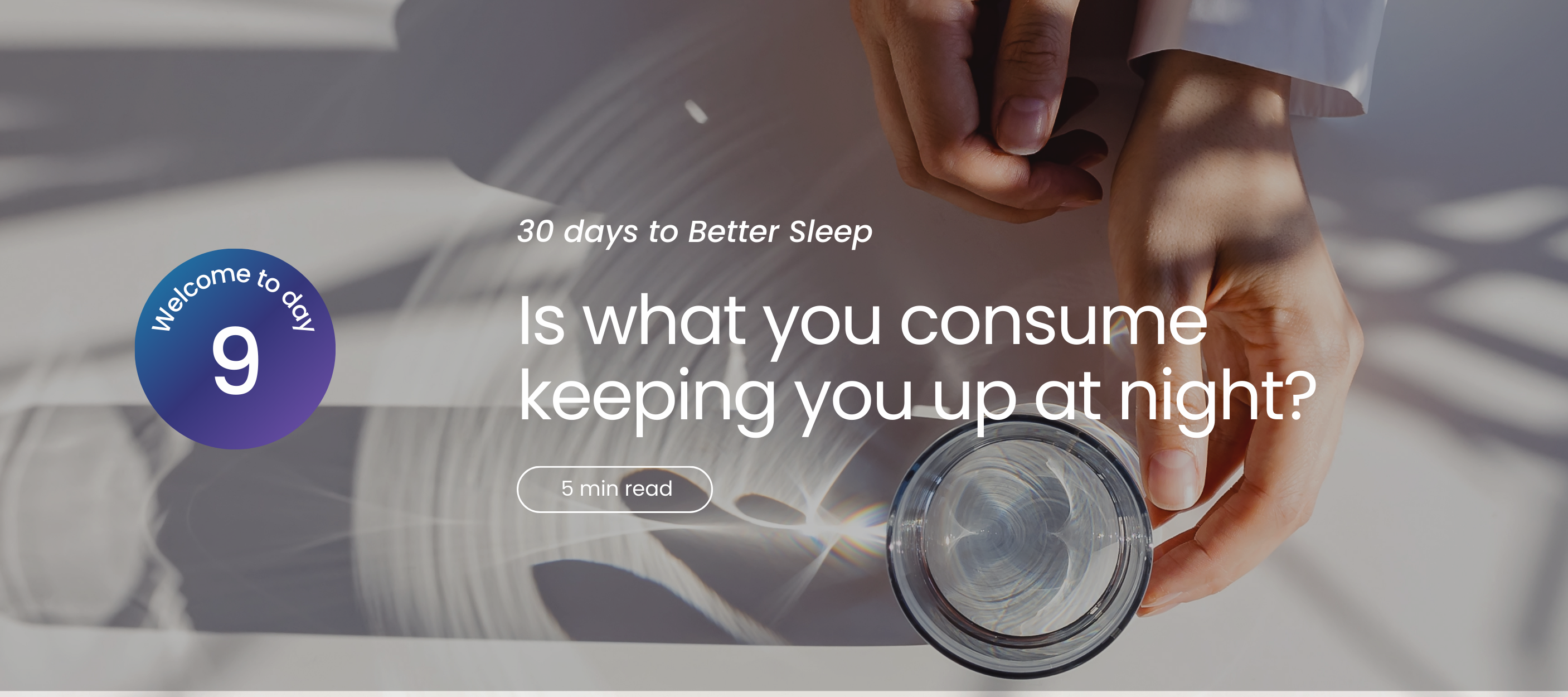
Time your intake wisely: Avoid caffeine in the afternoon and alcohol at least 3 hours before bed.
Fuel and hydrate earlier: Take multivitamins in the morning, eat your last meal 2 hours before sleep, and hydrate throughout the day—not right before bed.
Create a calm evening routine: These small adjustments can reduce sleep disruptions and help your body wind down naturally.
If you’ve been struggling with sleep, it might be time to take a closer look at what you’re putting into your body. What you eat, drink, and even the supplements or sleep aids you rely on can have a powerful impact on your ability to fall—and stay—asleep.
Sometimes, it’s not about adding more solutions, but removing the hidden obstacles that are working against your natural sleep process.
You may not realize it, but habits like that late-afternoon coffee, a nightcap before bed, or even poor timing of your multivitamins could be quietly disrupting your sleep quality. These small choices add up, and even well-intentioned ones can backfire if your timing or dosage isn’t right.
While some of these tips might sound familiar, they’re worth revisiting. Our daily routines shift over time, and it’s easy to overlook how a few minor adjustments could make a major difference in how well you rest. Let’s take a fresh look at the daily inputs that might be affecting your sleep—and learn how to align them with your body’s natural rhythms for deeper, more consistent rest.
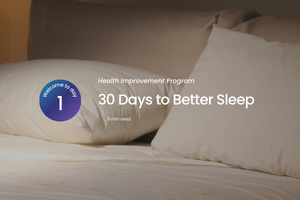
Key takeaways
Time your intake wisely: Avoid caffeine in the afternoon and alcohol at least 3 hours before bed.
Fuel and hydrate earlier: Take multivitamins in the morning, eat your last meal 2 hours before sleep, and hydrate throughout the day—not right before bed.
Create a calm evening routine: These small adjustments can reduce sleep disruptions and help your body wind down naturally.
If you’ve been struggling with sleep, it might be time to take a closer look at what you’re putting into your body. What you eat, drink, and even the supplements or sleep aids you rely on can have a powerful impact on your ability to fall—and stay—asleep.
Sometimes, it’s not about adding more solutions, but removing the hidden obstacles that are working against your natural sleep process.
You may not realize it, but habits like that late-afternoon coffee, a nightcap before bed, or even poor timing of your multivitamins could be quietly disrupting your sleep quality. These small choices add up, and even well-intentioned ones can backfire if your timing or dosage isn’t right.
While some of these tips might sound familiar, they’re worth revisiting. Our daily routines shift over time, and it’s easy to overlook how a few minor adjustments could make a major difference in how well you rest. Let’s take a fresh look at the daily inputs that might be affecting your sleep—and learn how to align them with your body’s natural rhythms for deeper, more consistent rest.

Caffeine is probably the first thing that comes to mind when people talk about sleep disruptions. Some folks can enjoy a cup of coffee at night and still fall asleep just fine, while others are wide awake all night if they have it past noon. The truth is, even if you don’t feel its effects immediately, caffeine harms sleep quality and prevents you from entering the deep, restorative stages of sleep. Even if you perceive that you fall asleep and stay asleep fine, caffeine too close to bedtime reduces regenerative deep sleep. So, try cutting it off in the afternoon to avoid it messing with your slumber.
Multivitamins: These can energize you, especially if they contain B vitamins or ingredients like ginseng. Take them in the morning to avoid disrupting your sleep later in the day.
Alcohol: While it may make you feel sleepy, alcohol reduces the quality of your sleep. If you want to sleep well, it’s best to avoid alcohol at least 3 hours before bedtime.
Eating: Overeating or eating too close to bedtime can interfere with your sleep. Try to avoid meals for at least 2 hours before you sleep.
Water: Staying hydrated is important, but drinking too much right before bed can lead to waking up during the night to use the bathroom. Keep water near your bed but aim to drink enough throughout the day so you’re not overhydrated at night.
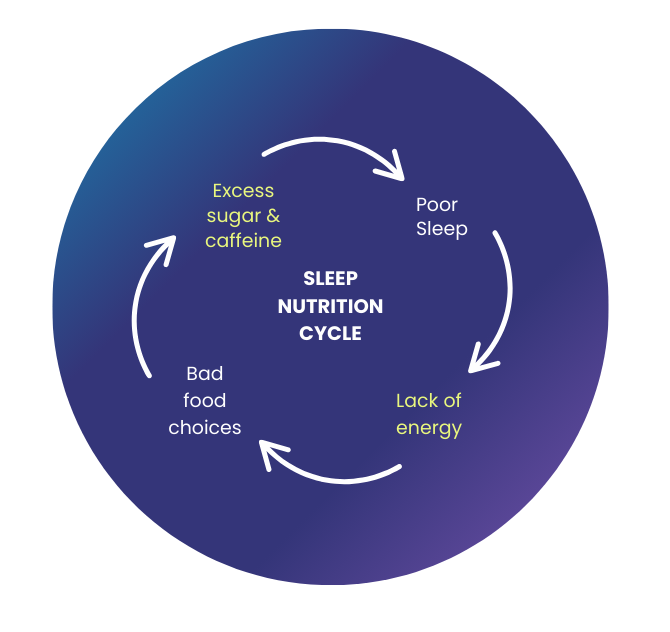
"Graphic explaining the relationship between nutrition and sleep quality."Paul Stokes Health & Fitness Blog, https://paulstokes.com.au/sleep-vs-nutrition-how-diet-affects-your-sleep-quality/. Accessed December 18, 2024.

"Graphic explaining the relationship between nutrition and sleep quality."Paul Stokes Health & Fitness Blog, https://paulstokes.com.au/sleep-vs-nutrition-how-diet-affects-your-sleep-quality/. Accessed December 18, 2024.
Many people turn to melatonin supplements as a sleep aid. While it can help, it’s easy to become dependent on it or take too much, leading to side effects like headaches or daytime drowsiness. Also, the jury is still out on whether taking melatonin impacts your body's natural production of it. MDsleep doesn’t include melatonin for these reasons. Instead, a natural way to optimize melatonin production is by getting sunlight during the day for at least 30 minutes. If this is not practical for you, another solution is to use a 10,000 lux light therapy lamp.

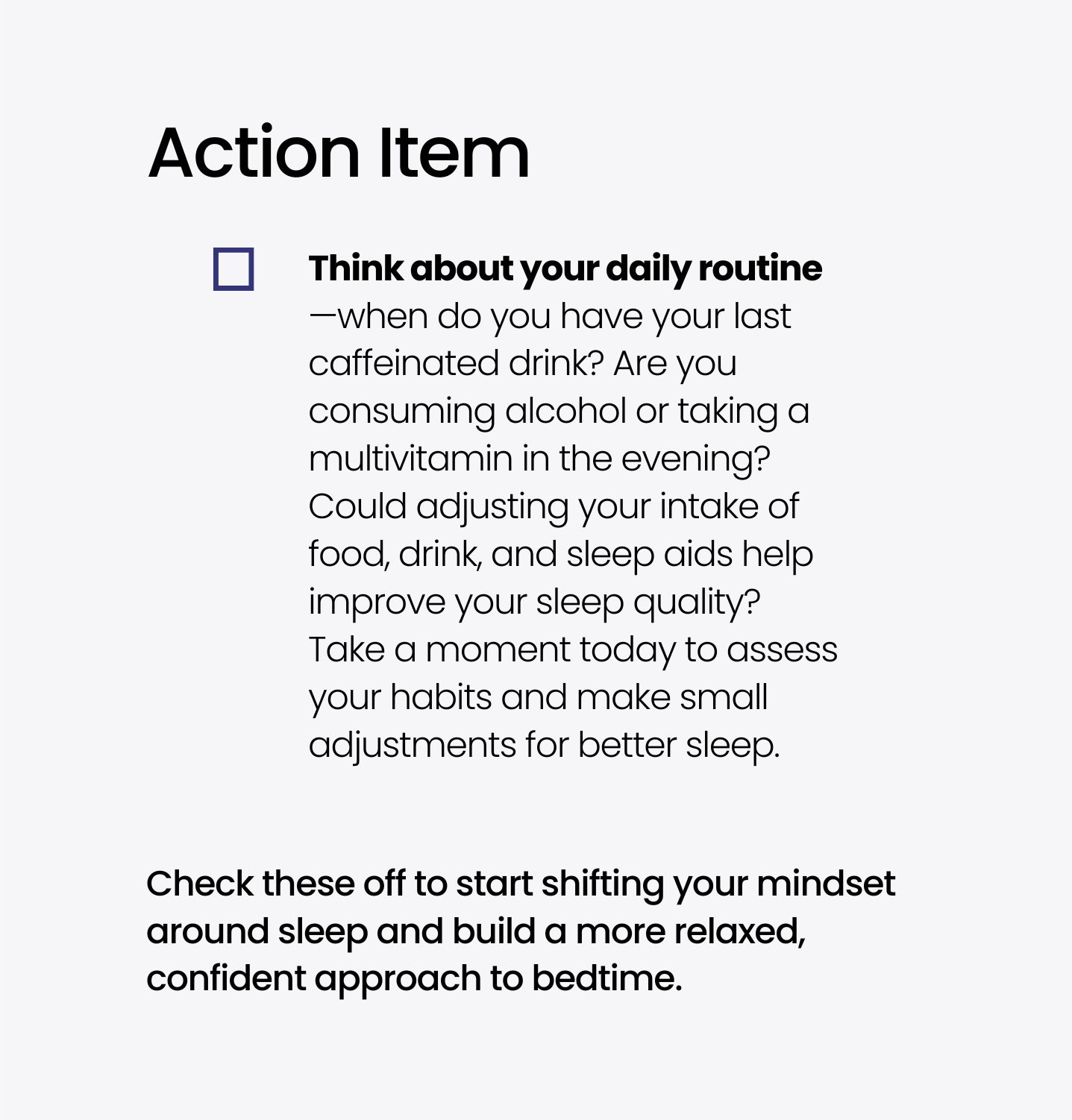
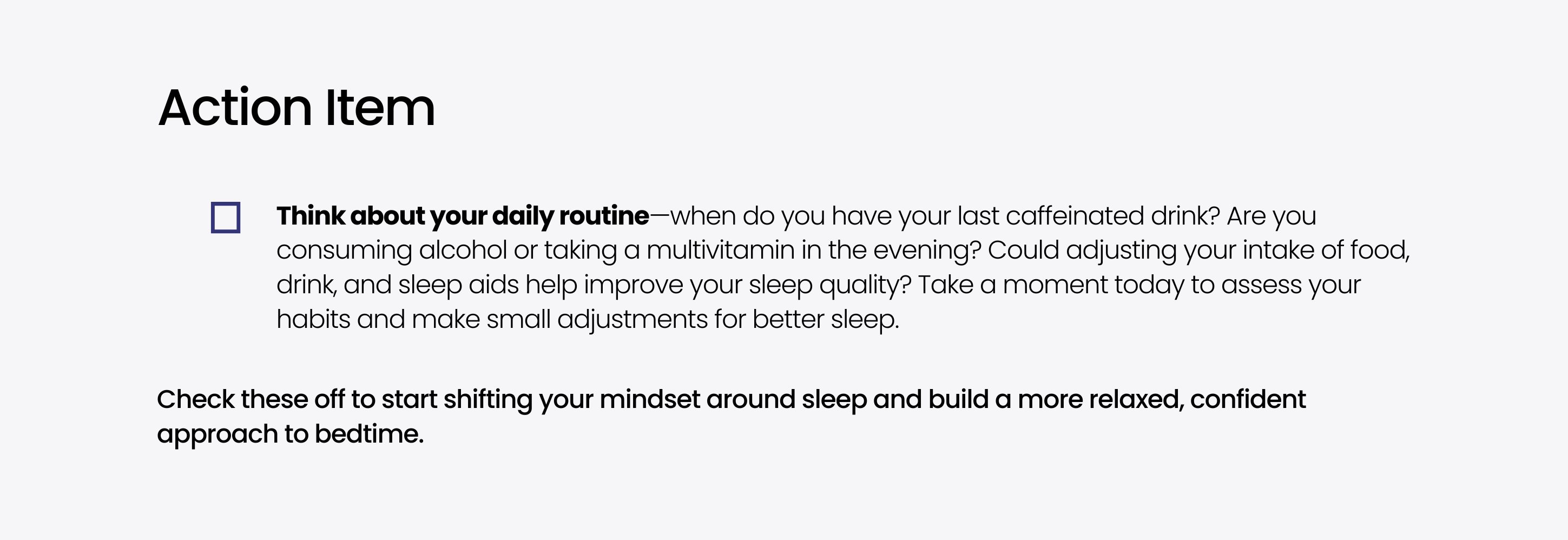

THE DOCTORS BRAND™
America’s leading clinically proven nutraceutical brand for better sleep, less anxiety and less pain
*These statements have not been evaluated by the U.S. Food and Drug Administration. Our product is not intended to cure or treat any disease.
MDbiowellness
Contact us
(805) 977-5709
M-F 9am-5pm PT
hello@MDbiowellness.com
© 2023 MDbiowellness